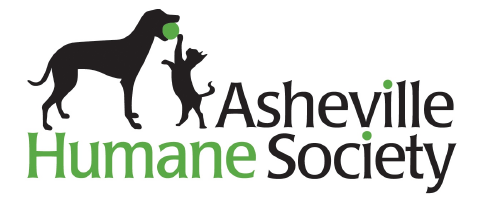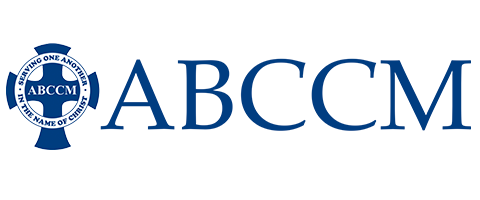You Have Decided to Buy a House/Condo/Townhome
Financial Considerations
If you have a financial advisor, he/she is your first call. Decide if you are paying cash or getting a loan. If you are going to pay cash, obtain a “proof of funds” document to provide with the offer. This can be a bank/investment statement or a letter from your financial institution. Account numbers and other personal information can be redacted. If you are going to get a mortgage in order to purchase, your next call is to a lender. The lender can pre-approve you as well as advise you on different loan options. You can find suggestions for local lenders here. Don’t be offended if your real estate agent asks to see the “proof of funds” or “pre-approval” before you start looking. It is crucial to have your financial documentation in hand when you make an offer. A prudent seller/seller’s agent will ask for documentation before even considering your offer. If you don’t have the documentation, it is likely the seller will move on to a competing offer with proof of funds/financing.
The Search
I will ask for a list of criteria for your home search. We try to start with everything on your list, but no matter what your price-range, there will be compromises and adjustments. You may also “filter” as you go through the search process – don’t worry if you change your mind about location or any other criteria – we all need to be flexible as the search unfolds! I will set-up a search for you directly in the MLS so that you can get the listings immediately when they go on the market and be notified of status changes on listings. If you are local, it is really beneficial if you do “drive-bys” of the homes you find interesting online. A drive-by can rule a house in or out due to location, condition, highway, etc., and it is a great way for you to become familiar with neighborhoods and areas you didn’t even know existed. If you are not local, consider timing your visit so that you, too, can do the drive-bys. It will save time in the long-run, and again, you will have a much better idea of the area.
If you aren’t ready to actually buy yet, then don’t start looking at specific homes. Agents are obligated to pre-qualify “ready, willing and able buyers.” However, doing the drive-bys is still informative, especially if you want to explore the area. When you are ready to seriously look with the idea of making a purchase, then we will schedule time to view homes. Typically, this is during the workday, but I understand that sometimes we have to accommodate work schedules. Please talk with me early on if you need to look in the evenings or on weekends so we can make a plan. Sundays are my day off!
Making an Offer
When you have identified a home you want to purchase, then we will put together an Offer to Purchase and Contract (I will give you a sample when we first meet). This is a standard form used by North Carolina REALTORS® but has important blanks to fill-in. All offers must be in writing and to be considered, accompanied by supporting addendums and the aforementioned proof of funds/financing. I will submit the offer to the listing agent, and, generally, we will verbally negotiate until we come to a “meeting of the minds” or one party ends negotiations. To be binding, the final agreement must be fully “executed” (signed) by all parties, so we try to get signatures as quickly as possible. I use a program for electronic signatures (DocuSign) to facilitate signing and make it easier for you.
Our contract includes “Earnest Money” deposit, which is typically 1-3% of the purchase price. This is a good faith deposit that you put down and is held by either real estate office or the closing attorney and credited to you at closing. In most cases, this is generally refundable if you pull out of the contract during the “due diligence period.” The contract also includes an optional “due diligence fee.” This is a non-refundable payment (but credited to you at closing) to the seller in consideration for taking their home off the market during your due diligence period so you can decide if you want to buy it. Typically, this is anywhere between $100 and $1000. Never put down more than you are willing to walk-away from as you never get due diligence money back! Your lender should be able to give you an idea of the down-payment and closing costs you will incur in order to obtain the loan. In addition, you will have some inspection costs which usually run less than $1000.
Contract Period
Once you are under contract you then have the “due diligence” period in which to examine anything that is important to you in whether you purchase the property. Typically, this includes inspections and survey, and it can also include your ability to get the loan.
Inspections: I will advise you the inspections that might be important to the particular property, including but not limited to a home inspection, pest inspection, radon test, and survey. I will assist you in arranging for inspections.
Attorney: In North Carolina, attorneys conduct real estate closings. You can use the attorney of your choice, and if you don’t have one, I can provide you with a list of attorneys and facilitate getting the contract to them.
Lender: As soon as you go under contract (unless there are considerations you want to work through first in regard to inspections or survey), you will need to make your loan application and order the appraisal. The loan process generally takes 30-45 days, so it is what guides the timeline for the transaction and should be initiated promptly.
Ready to Live the Mountain Life?
RE/MAX Realtor Margaret Vestal can help.
Who Does What?
Agent
As your Buyer Agent, I am here to facilitate the process and work in your best interest from start to finish. I am your guide, advisor and advocate. I am not a lender, inspector or attorney. Though I have knowledge in each of these areas, I cannot legally practice outside of my expertise and licensure, so please understand when I defer to these professionals.
Lender
Your lender handles all aspects of the loan in regard to the transaction. The lender may ask for assistance from me regarding information on the property, but generally I am not involved in the financing process. So you will work closely with your lender throughout. Chose a lender with whom you can communicate and who is readily available. Local is best.
What is Escrow and Title Insurance?
“Escrow” can mean a couple of related things. We use the term to describe the Earnest Money Deposit, i.e., “Escrow funds,” but also for the period in which you are under contract for the purchase, such as “escrow period.”
You can find an explanation of Escrow and Title Insurance.
Attorney
When you have selected an attorney, I will send them the contact. It is likely that the attorney’s paralegal rather than the attorney will be your contact throughout the process. The paralegal will work with me and with the lender to make sure she/he has everything needed for closing.
Closing will occur at the attorney’s office, generally, but not always with the sellers and buyers present. However, if you cannot be in town for the closing, all attorneys are adept at working with you on a “mail away” closing. Once all the closing documents are signed and funds have arrived at the closing attorney’s office, settlement has occurred.
Closing does not officially occur until the attorney has recorded the new deed at the Register of Deeds. At this point, you will be given the keys and the house is yours!
SUPPORTED CHARITABLE ORGANIZATIONS






